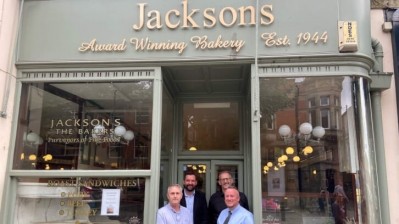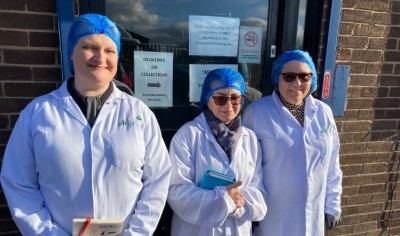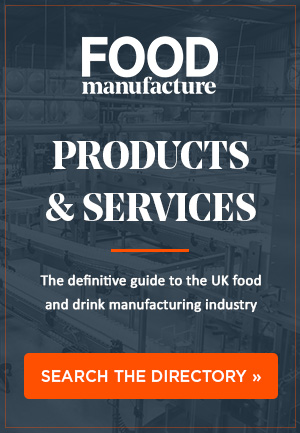Me & My Team
Surviving hard times in business
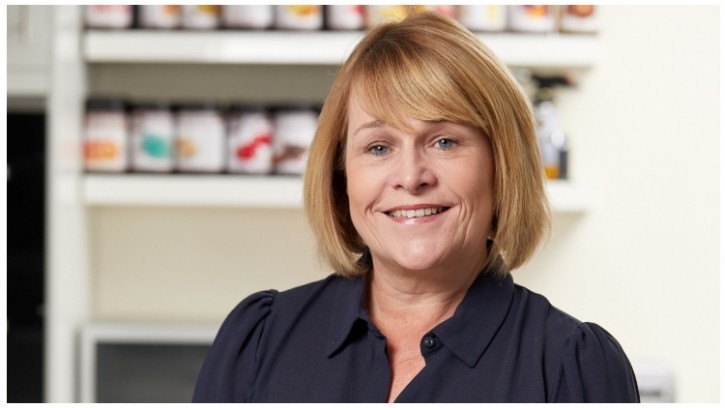
Henley Bridge, Lewes
Parent company: The Albex Group
Address: Cocoa House, 15 The Cliffe Industrial Estate, Lewes, East Sussex, BN8 6JL
Number of employees: 68
Size of site: 30,000sq feet
Output: Ship more than 1,000 orders per week
Number and types of lines: Over 2,000 lines, including chocolate, fillings, inclusions and decor, pastry cases, stocks and gravy, among others
I am currently the managing director of Henley Bridge, a role which I took just before Covid in June 2019. I have been with the company for 11 years.
When Henley Bridge was acquired, the directors assessed what talent and expertise and knowledge we had within the company and a discussion came about in which I outlined my vision for the business going forwards. They wanted to promote from within rather than recruiting externally.
The last four years since taking on the role, there’s not been a day the same. There were different fires to fight over the period of Covid and as we came out of the pandemic. Today, my role has been about taking a step back from the day-to-day business and looking at the longer term strategy and the diversification of the business – how we can continue to grow and evolve as a company.
Staying connected to the customers is really important but also making sure you still drive forward with innovation. I suppose that is one of my strengths because of my background in the wholesale market – you have to innovate and stay ahead of the competition, but also provide customers with ideas and concepts they want to see and use.
It’s not mine, it’s our business
We have 68 members of staff on the Lewes site and externally, including our external business development managers. But we also now, within the group, have access to the Daventry site. So to ensure that we expand as a business, we are also distributing and sending out customer deliveries and products from this site as well.
The management style is quite flat. We have seven managers within the business, and they all have a category, but they also work very closely as a management team. The philosophy that I'm trying to endorse with them is, it's not ‘my business’, it's ‘our business’. So all of us are accountable for driving it forward and making change.
We are quite competitive as individuals - we all want to succeed
Everyone in the business is passionate about Henley Bridge, which does make it a special place to work. We do genuinely care about the staff, and obviously, about our customers. But also, we are quite competitive as individuals - we all want to succeed. So if we set ourselves a challenge, we normally hit those challenges or we make sure that we overachieve on them.
It's really important to create a caring, positive culture and environment, making sure that people do feel valued. I like to treat staff how I like to be treated, I think it's about recognising success and making sure you reward that accordingly. And that doesn't have to be monetary, it can be simple things like the ice cream van turning up and giving everyone a free ice cream on a boiling hot Friday. We did that recently – for myself, that was just something small, but actually the enjoyment on site was massive.
We do pizza days in the winter, if we've, you know, ever exceeded on a target or had a really tough week - and we've had quite a lot of tough weeks. We try and give something back as a little bit of a reward just to show employees that we do appreciate the effort and the work that they put into the company.
Henley Bridge’s market and focus
We deal with what I would class as the majority of top manufacturing brands across Europe, in the sweet ambient market. And since Covid, we bought on several new suppliers who have elevated themselves and our product range massively.
We aren’t the most aggressive on price, but we do have access to key commodities within the Group which is very important. That gives us more diversification and enables our customers to have access to more of a ‘one-stop-shop’ from a bakery perspective.
What we're looking at now is the diversification of us as a business. So, one of the things that we're looking at as a project is to diversify more into the savoury ingredient market. We have got some exciting launches coming up - one in September that I'm very excited about.
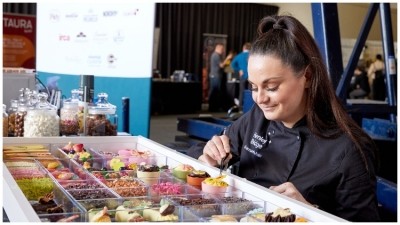
One of our KPIs is linked to customer satisfaction and, actually, through the surveys that we've produced and the feedback that we have, our customers are highly satisfied. The year before last we scored 9.3 across all sectors in our survey, which demonstrates the quality of our customer service. We are ‘order before 2pm for delivery the next day’, nationally for the UK, apart from the highlands and Ireland.
Customer experience is something we’re always working on. We've just put in a new automated telephone system, so now we can gauge what telephone calls we're receiving, and we can go in and listen to some of the conversations if we need to (for training). We do try to ensure that the customer journey continues to be elevated – and that is not just about product, it’s about services, it's about going out doing training on site with our customers, staff, with their chefs, or their development teams, and looking at different flavour profiles.
We have weekly management meetings, with management team cascading the relevant information down to their teams. Then quarterly, the directors and I conduct staff briefings to the whole company, giving an update of where we are with performance and a general update on the business.
What we have identified recently – and which I’m keen to do – is make sure the strategy, which we implemented pre-Covid, is still right for the market conditions now because everything's changed so dramatically.
We have work to improve communication and we’ve identified that. We are holding away days, looking at the strategy and what the key 90-day priorities are - and we implemented that earlier this year in fact. However, what we are just about to implement is a new internal intranet. That will be an amazing communication forum for everyone across the business.
Out of the frying pan and into the fire
The first year of Covid was horrific.
We knew the biggest part was job protection. Retaining the staff – like we did – was critical, because when you come out of Covid, and you haven't got a team – and a lot of people did it, they released staff, made a lot of redundancies – now you can't recruit. So we're lucky because we did retain all of our team., and actually what it's done now is help us attract exceptionally good people.
The key challenge coming out of Covid was what we had financially lost as a company. So that was quite tough, because there was a period of time where we couldn't give financially anything back to staff. So one of the things that we did was implement birthday days, so everyone got their birthday off. And that was, from a morale point of view, one of the biggest lifters that we did.
Cost control was huge – and what we did was brief that out to the company: what we needed to do to get the business back on track financially. And we turned that around within seven months - and that was everyone pulling together.
We knew the biggest part was job protection. Retaining the staff – like we did – was critical
We reassessed all our processes, making sure when things went wrong, we did a root cause analysis. Not just a plaster, but there was a fix to make sure that those processes weren't repeated, which were potentially creating a loss to the company or not creating profit.
We’ve been through Covid, Brexit, Ukraine, inflation, and now deflation is just as important. So managing deflation, back down the line, we've got to get that right - which we started to do.
I think everyone's feeling it this year. A lot of businesses you speak to, everyone is concerned. But we don't sit still and we've re-evaluated everything again.
We can't do everything, but we’re reviewing the things that we've done previously – looking at whether it worked and, if so, how did it work, or how can we make change.
We need to put in the planning and the time and make sure it's done right.
It's about having your finger on the pulse.


